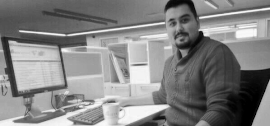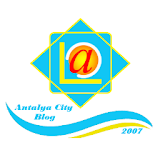During his address to the PACE, President Gül spoke of the challenges and threats within Europe, underscoring: “To overcome those menaces, we don’t need to create a unified European Army. What we need today is to construct “a unified European Conscience” for a freer, safer and more egalitarian and united Europe.”
President Abdullah Gül addressed the Winter Session of the Parliamentary Assembly of the Council of Europe (PACE).
The President launched his speech by expressing his deepest condolences to the Russian people in response to the terrorist attack at Moscow’s Domodedova Airport yesterday and strongly condemned all kinds of terrorism. He later extended his heartfelt thanks to the member states for the trust shown to Turkey as they take over the Term Chairmanship of the Committee of Ministers, recalling that the Turkish Deputy from Antalya, Mevlüt Çavuşoğlu, is the President of the PACE.
“DIFFERENT GROWTH RATES LEAD TO A NEW DISTRIBUTION OF GLOBAL POWER”
President Gül, asserting that Europe is in a mood of deep pessimism on account of the current global economic crisis which has affected Europe more severely than other regions in the world, noted that for the greater part of the last four hundred years, the West has enjoyed a huge comparative advantage over the rest of the world.
Stating that only ten years ago, the industrial democracies dominated the world economy, contributing around 70 percent of global economic output, President Gül said that today, that share has fallen to just over 50 percent. In another decade from now, he predicted it would fall to around 40 percent. Then, the bulk of global output will be produced in the emerging world, he declared, arguing: “Different growth rates lead to a new distribution of global power. It is obvious that the centre of gravity is shifting towards other parts of the world, particularly towards Asia.”
PAYING TRIBUTE TO DIVERSITIES
The President further warned that if the present trends continue, Europe’s role and influence in economic terms would gradually decline. Nevertheless, he continued, Europe is not just about industrialization, technology or economic power, it is also a cradle of notions such as democracy, the rule of law and respect for human rights, he declared and further stressed that enlightenment and democratic revolutions were all original European achievements with historical global appeal. Europe, the President reiterated, although ruined by warfare for centuries and having experienced several tragedies in the 20th century, proceeded to produce humanity’s noblest works, proclaiming: “Tolerance, acceptance and mutual respect of diversity have become our shared norms.”
RESPONSIBILITY FALLING UPON EUROPE
Further underlining the fact that membership of such a community entails accepting certain obligations in respect of others and contributing to the development of a fair and cohesive society, President Gül promulgated that Europe represents a way of life based on shared common values and standards with universal relevance, saying: “A divided Europe has led to war and oppression, whereas a Europe without dividing lines based on the shared democratic principles has led to peace and prosperity.”
GUARDING THE COMMON VALUES
The growing pessimism in today’s Europe, the President said, is reshaping its political life, adding that there are growing manifestations of intolerance and discrimination in many societies.
“Over the past few years, our member states have been affected by weakening social ties. Radicalization and increasing gaps between different religious, ethnic and cultural communities have started to harm the social fabric of our nations. These contemporary trends challenge the cohesion of European societies and may even endanger Europe’s democratic acquis. Racism and xenophobia represent a major cause of concern in connection with the current economic crisis. They lead governments and political elites to take a hard line on immigration. Whether Roma or traveler, Muslim or Jew, in general, those who are different experience hostility and social exclusion in many of our societies. There is a rise in electoral support for political parties which portray immigration as the main cause of insecurity, unemployment, crime, poverty and social problems.
These are trends which should concern us all. Those pathologies are weakening Europe and decimating its
soft power in the world. We should work hard to defeat these problems to reassert Europe on the global scene. The Council of Europe has done and continues to do much for promoting peaceful co-existence and mutual respect between peoples of different origin, culture and faith living in Europe. Therefore, the Council of Europe has the duty to address and counter these new challenges. As the guardian of the European Convention on Human Rights, we have the obligation to defend our values which are preconditions for democratic security and stability in Europe.”
“FORTRESS EUROPE IS NOT A RATIONAL CHOICE”
European societies, President Gül forecasted, will eventually become more diverse, referring to the demographic trends. “We have also seen reverse migration among our member states due to differences in economic growth rates. For example, my country, Turkey is now experiencing immigration from Western European countries, whereas it was a source of migration beginning from the 1960s. Therefore, “Fortress Europe” is not a rational choice. It is an illusion. If our societies are becoming more diverse, we have to address the growing political and social consequences of that diversity,” he maintained.
The President also stressed that both migrant communities and host countries should do their utmost to avoid segregation, separation and parallel communities. For harmonious democratic societies, he argued, diversity has to be inclusive, touching upon the fact that European Muslims have perhaps been more affected than others by these tendencies, particularly after the terrorist attacks since September 11 in New York, Madrid, Istanbul and London.
“TERRORIST ORGANIZATIONS HAVE NOTHING TO DO WITH ISLAM”
Drawing attention to the fact that Muslims in Europe are very diverse not only in their geographical origins and cultural heritage, but also in their ways of interpreting and practicing their faith.
The perpetrators of such terrorist crimes have nothing to do with Islam, he promulgated and further stressed that those terrorist organizations are attacking many Muslim targets too, adding that they do not have achievable political objectives, but rather pursue their archaic and illicit utopian ideas. “Islam, like all other religions, teaches tolerance and respect for human beings of all faiths. It is the abuse of faiths for political purposes which leads to intolerance and exclusion.”
Underlining the fact that the European democratic institutions should promote human rights, tolerance, dialogue and social cohesion, President Gül continued as follows: “I have been advocating construction of a new political language for some time both at home and abroad. I believe the nature of the political language determines the outcome. The political language can be either constructive or destructive. With their choice of language, political actors can serve to foster a common understanding or division. Therefore, mainstream politics in Europe has to address these fears in a convincing manner while defending respect for diversity and human rights. We have to make the argument much more forcefully that the continent will not be safe with politicians who claim that Europe is at war with other cultures and religions.
On the contrary, if unchecked, the growing influence of such arguments will make Europe not only less tolerant and democratic, but also a more dangerous place to live in. European values are based not only on our achievements, but also on bitterly learned lessons. Let us not forget that the popular support for explicit anti-Semitism was only 5 % in the late 1920s. With a snowball effect, this poisonous minority paved the way to the Holocaust in the late 1930s. History does repeat itself, if we do not draw lessons from our past mistakes.”
“WE DO NOT NEED TO CREATE A UNIFIED EUROPEAN ARMY TO OVERCOME THESE MENACES”
The challenges from within Europe still exist, the President also pointed out and he evinced that to overcome those menaces, they do not need to create a unified European Army. What we need today, he continued, is to construct “a unified European Conscience” for a freer, safer and more egalitarian and united Europe.























